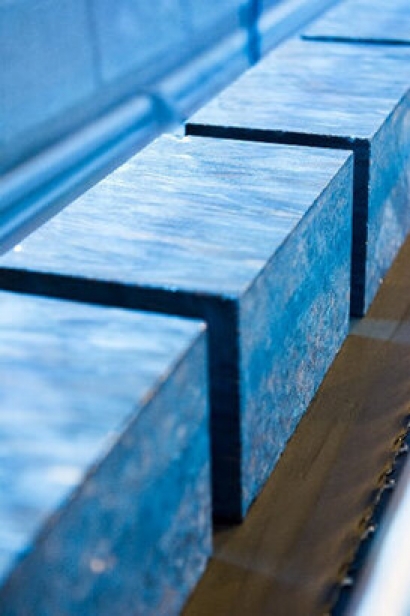
REC Solar Norway produces high purity silicon for use in solar cells, using a unique metallurgical purification method that REC Group claims consumes upwards of 75 percent less energy than typically competing processes, e.g., the Siemens process as used by the majority of the industry players, mainly in China.
REC Solar Norway has an annual production capacity of more than 8,000 Mt, corresponding to an annual solar panel production of about 2.5 GWp. Installed in Norway, these panels would produce around 2 TWh per year, enough to power all households in Bergen. Installed in a Mediterranean country like Spain, the panels would deliver in excess of 3 TWh annually over an expected lifetime of more than 30 years.
EPD is a global, independently verified environmental declaration which summarises the environmental impacts of all components of a finished product, production process and transport. REC’s EPDs are developed according to Product Category Rules (NPCR 029 - v1.1) managed by EPD Norway. These are internationally recognised guidelines for developing an EPD, making it possible to compare the climate impact of two products of the same category. Product Category Rules for elements of the solar cell value chain result from a project initiated by the Norwegian Solar Energy Cluster, supported by the Norwegian Research Council.
An EPD is created based on a Life Cycle Analysis (LCA), which is in turn carried out in accordance with relevant ISO standards and guidelines. Asplan Viak, one of Norway's largest and most recognised engineering and architecture companies within construction and infrastructure sector with an extensive experience with EPDs, has conducted the LCA for REC Solar Norway, which gave a carbon footprint of 11.2 kg CO2-eq per kg silicon. This is by far the lowest climate impact of any solar grade silicon product, and between 5 to 15 times less than solar grade silicon produced by the dominant production methods.
“With an EPD for solar grade silicon, authorities, developers and individual customers can objectively assess their choice of solar PV product with respect to its embedded carbon footprint” said David Verdú, Managing Director of REC Solar Norway. “Although solar panels do not generate emissions once installed, the production methods of a panel can differ significantly. REC Group has always been committed to a low carbon footprint in its solar materials and panels and is continuously striving to make manufacturing more efficient and save on resources. We are already working on the next big innovations for the industry.”
REC Solar Norway is a member of the European Solar Manufacturing Council (ESMC), which advocates increased production of solar PV products in Europe, and of the Ultra Low-Carbon Solar Association, working to make it easier for customers to choose solar cell products with low carbon footprint.
For additional information:

